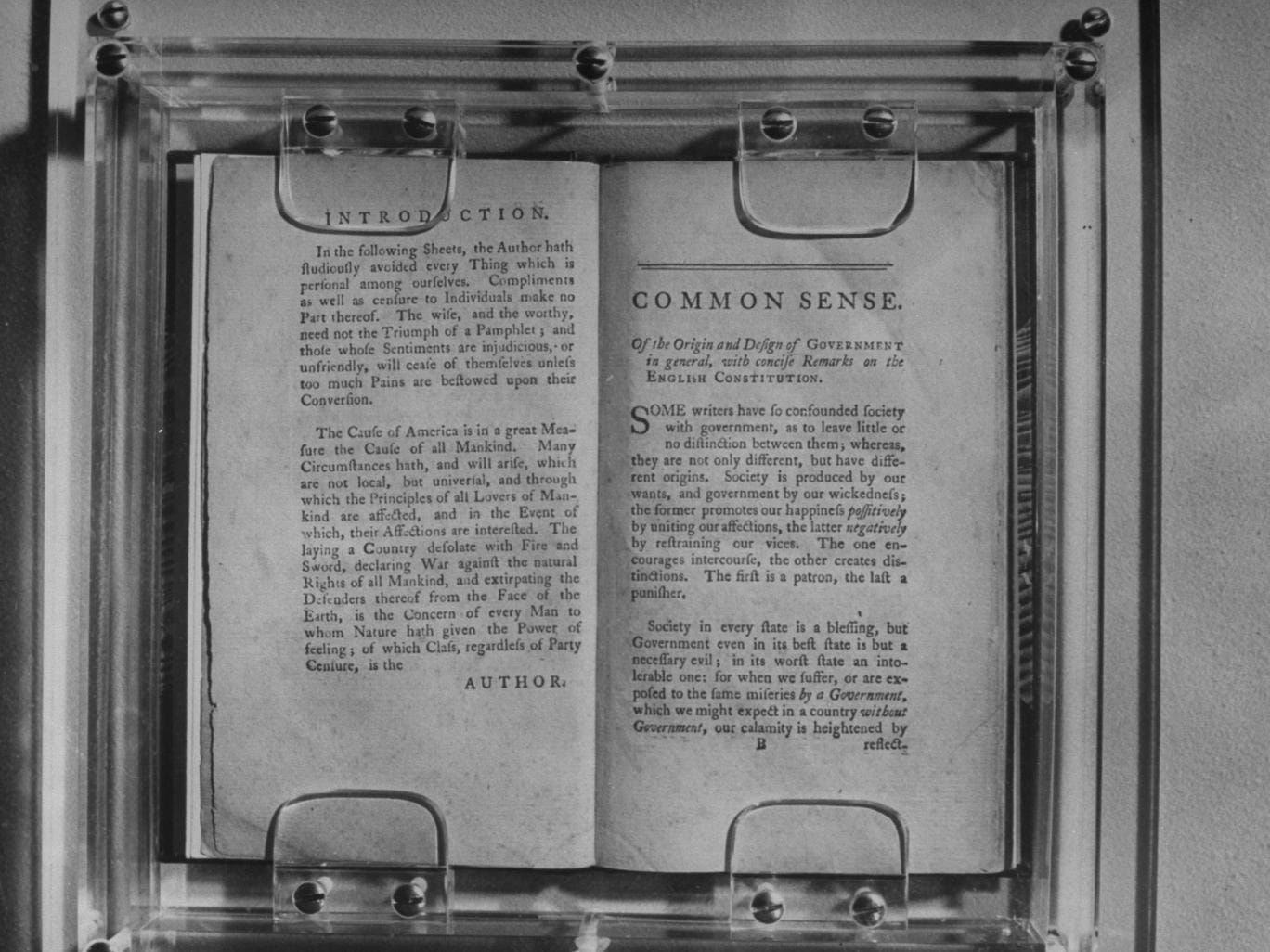
A pamphlet was published in Philadelphia 240 years ago this weekend, with the rather unwieldy title of "Common sense; Addressed To The Inhabitants Of America On The Following Interesting Subjects". This document, anonymously signed but written by one Thomas Paine, would become the best-selling book in America and ultimately change the course of history.
Disquiet at British rule in the 13 American colonies was gathering some momentum in the early days of the American War of Independence, but public interest was fairly muted. Paine's 77-page pamphlet aimed to outline the reasons for rejecting British authority in the simplest, most straightforward terms, with self-evident arguments and a destiny written in the stars. "Common Sense" was the perfect title.
"There is something very absurd," wrote Paine, "in supposing a continent to be perpetually governed by an island … The cause of America is in a great measure the cause of all mankind."
Within a few months, 150,000 copies had been sold across the colonies – the equivalent today, proportionally speaking, of well over 10 million. While some ridiculed the pamphlet (one loyalist warned of how America might "degenerate into democracy") Paine's words succeeded in swinging public opinion behind the revolutionary cause, and in doing so changed the language of political campaigning for ever. Even today we hear politicians use Paine's notion of "common sense" to try and appeal to popular wisdom.
Paine's own destiny was not a happy one. Having donated his share of the profits from "Common Sense" to George Washington's Continental Army, he left for Britain, and later France, where his written work would cause great controversy and legal tussles. His condemning of religion ("human inventions set up to terrify and enslave mankind") would see him ostracised by the Founding Fathers, whose cause he had done so much to help. He died in poverty in 1809.







